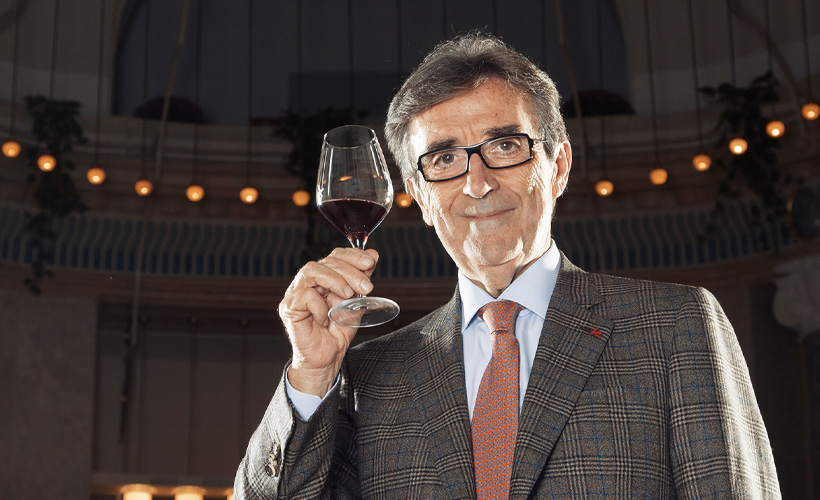Mario Piccini and Riccardo Cotarella discuss the role of the winemaker, seen as a wine transformer and communicator. Riccardo emphasizes the visceral bond between wine and producer and advises young winemakers to balance passion and market awareness, without neglecting the importance of the gavetta. He also talks about the importance of travel to understand the link between wine, terroir, and culture, highlighting how knowledge is key to creating wines that respect nature, tradition, and consumer habits.
M: Riccardo, there is one thing about your work that has always fascinated me. We can say that the winemaker, at bottom, is a transformer, a skilled professional endowed, however, also with the chrisms of the communicator, by virtue of that continuous dialogue he weaves with wine.
A: I thank you Mario. That’s right: wine is a living matter, a child that grows and feeds on the passion of its “parent.” And as in any relationship, conversely, the wine returns what you have given it, weaving a visceral relationship with its creator. Indeed, that wine will carry imprinted in its character the education you imparted to it, becoming in fact an extension of a person’s ideas and philosophy, always keeping well in mind also the final recipient, that is, the consumer.
M: And you certainly are a master in this. By virtue of your very rich experience, what advice would you give to young people entering the world of winemaking for the first time?
A: First of all, let me say that I am very happy with the growing number of young people who are interested in this profession. This makes me proud and confident of the prosperous future of winemaking, especially because I see in them the living fire of passion. Moreover, compared to my generation, they have a greater awareness, due to a more lucid vision of their path: they know that their every move cannot disregard the market. Sometimes, if I may be allowed a little criticism, this attitude is accompanied by a few too many pretensions, rejecting that healthy gavetta that each of us has made, pulling grape carts. This does not detract, however, from the fact that they are well acquainted with the new dynamics that govern the wine world and know that they will have to make the most of them if they are to succeed in this sector. As I, too, never tire of telling them, our end point must not be our personal taste, but that of the consumer, respecting, first and foremost, the wide diversity of palates.
M: And this brings us to another central aspect of your work: the constant travels to explore new forms of taste and territories in every corner of the world.
A: You are absolutely right, everything starts from there. After all, it sounds like a platitude, but it is right to remember, if there was no Mother Earth with her seasonal cycles we would not have wine. Respecting and protecting the rhythms of nature is the first commandment for each of us, even more so in the wine business. At the same time, the human and cultural factor that has been intertwined with that territory over the centuries is also essential. Knowing all these elements is essential to be able to offer a wine that can fully interact with the final consumer and his habits. For example, in Japan – a country where I follow a major winery – the staple of the diet is fish; this means that it would be misleading to propose a pairing with a structured red wine. On the contrary, the ideal pairing will be with an aromatic white, capable of enhancing the components of the local cuisine. This brief excursus to emphasize how knowledge, in this work as in all others, is essential to make winning choices, always with the utmost respect for the grapes and the territory.







